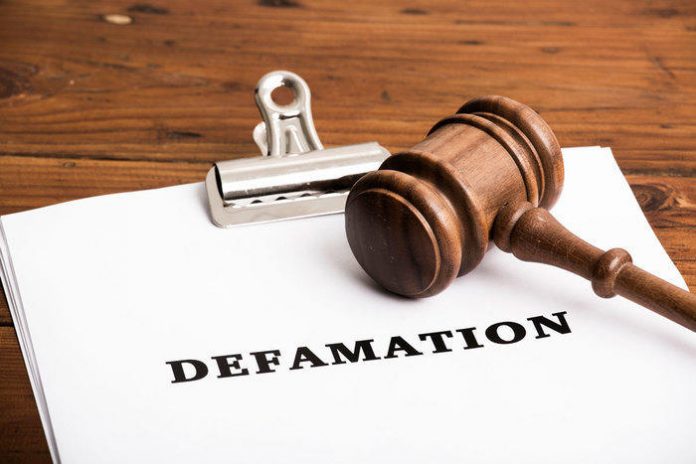This article is written by Ms. Somya Jain, from the Vivekananda Institute of Professional Studies. The article aims to analyze the Defamation Bill of 1988. It establishes the background and the reasons for introducing the draconian Bill that was later withdrawn due to mass protests.
Table of Contents
Introduction
The draconian law of defamation has been much criticised from time immemorial. With the advent of time and the growth of technological facets, the cases of harming the reputation of others have rapidly increased. On the other hand, a progressive path of democracy and recognition of fundamental rights such as freedom of speech and expression has questioned the legality of defamation, being a criminal offence, now and then. The fact that people have a right to freely express their opinions and to be aware of the contemporary issues surrounding their existence, forces the framers of law to bring about the necessary reforms concerning the defamation law. One such incident was observed in the year 1988 when the then Prime Minister Rajiv Gandhi, to curb the extensive power of the press, formulated laws concerning the offence of defamation, thereby, prohibiting the press from publishing scurrilous articles that had criminal imputation in the minds of the public at large.
Overview of the background of the Bill
The ruling government of the then Prime Minister Rajiv Gandhi presented the Defamation Bill 1988 on 29th August 1988 in the Lok Sabha and was passed the very next day. The Bill was introduced in the public domain without any prior consultation and debate with the concerned people being affected by the Bill especially the press. The haste with which the Bill was introduced was held negatively against the government as it indicated the attempt of the government to impose censorship on the media especially on investigative journalism.
Before delving into the issues pertaining to the Bill, it is essential to understand the background of when the Bill was introduced. The then government in power was criticised on multiple grounds for its failure to uphold its position in the country. According to many journalists, one of the main reasons for Rajiv’s Gandhi government to introduce the new Defamation Bill was to condemn the actions of the press in enumerating the faults of Mr. Rajiv Gandhi in the Bofors case time and again. In this concerned case, India entered into a contract with AB Bofors, a Swedish arms manufacturer, to provide for the armoury needs of the country. However, it was later discovered that AB Bofors had paid huge amounts by way of bribes to several government officials in India including the then Prime Minister Rajiv Gandhi. This news unleashed animosity within the public at large towards the government especially the Prime Minister which resulted in the press publishing about the same. Aggravated by the same along with other failures, Rajiv Gandhi introduced the said Bill.
The press and the public contended that the said Bill curtailed their Right to Free Speech by furthering a criminal action against lucid exposition of the press. In addition to this, it demolished the right to know guaranteed to the public. However, the scathing protests and opposition to the Bill ultimately led to the withdrawal of this draconian legislation.
Reasons for protests against the Bill
The tyrannical law of defamation incorporated in 1988 underlined some objectives of the Bill that were:
- To prevent character assassination.
- To protect the reputation of an individual.
- To prevent freedom of the press from becoming a licence.
However, as far as the true motives behind establishing such law were concerned, the opponent party criticised the Bill on the grounds that it aimed at:
- To protect persons in high places involved in corruption.
- To discourage investigative journalism.
- To muzzle the press in India.
The Bill sought to introduce some new provisions which were detrimental to the press and the public at large. These provisions were the grounds on which the opponents based their contentions thereby, refusing to accept the same. Some of these provisions include:
- According to Section 3 of the Bill, any person who by words or by signs publishes any adverse claim intending to harm the reputation of the person concerned will be said to defame that person and will be punished under the said Bill.
- Section 12 was considered to be one of the most pernicious provisions. It states that if a person is charged with defaming another person, and if he claims that his act is protected under exemption given under Section 4 or Section 11, the burden of proof will lie on the defendant in contrast with the general practice in regard to which the petitioner is expected to prove their claim and then the onus of proof shifts onto the defendant for rebutting the contentions produced by the petitioner. The basic principle enshrined under the Indian legal system is the presumption of innocence. The new law sought to damage this very fundamental principle by transferring the initial burden of proof onto the defendant and the subsequent rebuttal phase onto the petitioner. Apart from this, the provision will also frustrate the process of the court. In common practice, the court issues summons for the production of original documents at an appropriate time, but with the initiation of the new law, the Indian government served notice to circumvent the process.
- Section 13 of the Bill establishes stringent punishment if anyone is found guilty under the concerned law. It states that if a person commits an offence mentioned under the Defamation Bill for the first time then they will be subjected to imprisonment for a term which shall not be less than one month, but which may extend to one year and with a fine which may extend to two thousand rupees, and, in the case of a second or subsequent offence, with imprisonment for a term which shall not be less than three months, but which may extend to two years and with a fine which may extend to five thousand rupees. Such stringent punishment was criticised on a national level as it was detrimental to basic human rights.
- Section 14 empowers the Sessions Court to try the offences under the Bill in a summary way and can further, pass a sentence enumerated under Section 13 even in a summary trial. It stipulated that the trial shall be concluded within a period of three months from the date on which the accused was ordered to appear before the court. Such type of provision never found light with regards to other offences like murder.
- Section 15 asserts that if the accused establishes that the imputation published is true and it is essential for the public good to publish the same, subject to the question of fact. Additionally, the onus of proof lies on the accused to prove the same and the prosecution is expected to rebut it.
- Section 18 stated that if the accused is a publisher, journalist, printer or editor in any newspaper or periodical, then the court should not dispense the case with the personal attendance of the accused. This means that the accused will have to suffer long trials while attending court. The provision also empowered the court to hold the trial in-camera and publication of the proceedings of the court itself would then become an offence.
The Bill posed blatant threats to freedom of speech and expression of the press. Therefore, it faced unprecedented defiance from the media, advocates, students, and literally the entire public. Several meetings were arranged to discuss the same issue. The attempt to redefine the concept of defamation left scathing effects by way of large scale protests in the country. The Bill directly or indirectly targeted the media group by curbing their free speech. Spontaneous demonstrations covered the grounds of India. This step of the fanatic government was bolstered to strengthen their arguments that the Bill was initiated to conceal the corrupt practices of the government and to muzzle the press to prevent publishing about potent scandals.
The proponents of the legislation took shelter under the 42nd Report of the Law Commission (1978) and the Report of the Second Press Commission (1982), which suggested changes under the existing press laws at that time. However, the reports never suggested such draconian provisions be included within the new legislation. Moreover, the Commission recommended that the publication of fair and accurate comments, made in good faith in the public interest should be given complete privilege. Therefore, the government failed to muster credible defence in their favour.
This led to the culmination of the long-fought battle against the new Defamation Bill. The then Prime Minister, Rajiv Gandhi himself released a statement emphasising the efforts of the government to protect the right of the press. He stated that “a free press is an integral part of the inner strength and dynamism of our democracy. Without a free press, there can be no democracy. The imperishable values of our freedom struggle have gone into the making of the press in India. We uphold this legacy.” Thus, on 22nd September, Rajiv Gandhi announced the unconditional withdrawal of the Bill and expressed his support for the freedom of expression.
Conclusion
The draconian law of defamation raises questions related to the criminalisation of free speech and expression and the concerned law on defamation. Since the law of defamation intrinsically protects the reputation of an individual, it remains in constant conflict with the fundamental right of free speech and expression. It becomes all the more necessary for the relevant authorities to balance the two while imparting justice to the victim. On one hand, it is essential to protect the reputation of people which is considered as their property, while on the other hand, it is the duty of the concerned authorities to recognise the freedom of free speech and expression along with protecting the right of the public to know the truth in certain matters.
The Defamation Bill 1988 was interpreted in the guise of protecting an individual’s reputation while demolishing the freedom of the press. The nationwide protests forced the government to scrap off the legislation on the grounds of it being violative of fundamental rights. The unconditional withdrawal of the Bill marked a new beginning of the rights of Indian citizens. Therefore, the growing intolerance of the public should be utilised in a positive manner thereby, bringing the corrupt system to a halt. Lastly, it is substantial for the concerned authorities to give a harmonious construction while dealing with such matters that would be in favour of all and not just the party in power.
References
- delivery.php (ssrn.com)
- NT_4Dec88.pdf (unigoa.ac.in)
- Victory for press freedom (sagepub.com)
- Defamation Bill: How it faced protest by journalists like farmers are doing against farm bill (enewsroom.in)
- Conceding defeat – Special Report News – Issue Date: Oct 15, 1988 (indiatoday.in)
- A happy ending – Indiascope News – Issue Date: Oct 15, 1988 (indiatoday.in)
- What is the Bofors scam case? | India News, The Indian Express
- Microsoft Word – paper 10 (ili.ac.in)
LawSikho has created a telegram group for exchanging legal knowledge, referrals and various opportunities. You can click on this link and join:
https://t.me/joinchat/J_0YrBa4IBSHdpuTfQO_sA
Follow us on Instagram and subscribe to our YouTube channel for more amazing legal content.
 Serato DJ Crack 2025Serato DJ PRO Crack
Serato DJ Crack 2025Serato DJ PRO Crack











 Allow notifications
Allow notifications


